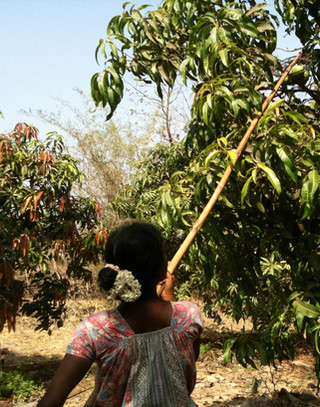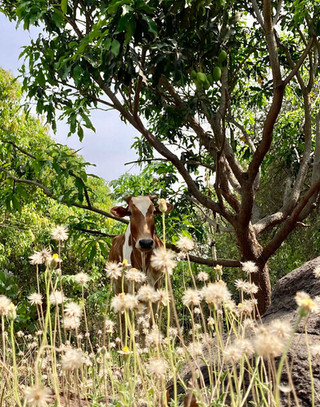

Organic Farming Promotion
- Project Name: Business Accounting
- Client: Company Name Inc.
- Project Commencement Date: January 26, 2019
- Project Completion Date: March 27, 2019
- Project url: www.example.com
Fostering Sustainable Agriculture for a Healthier Future
In today’s rapidly changing world, sustainable agricultural practices are not just a necessity—they are a responsibility. At our charity, we are deeply committed to organic farming as a means of preserving the environment, ensuring food security, and promoting the well-being of communities. By embracing farming methods that are in harmony with nature and using natural products derived from cows, we are building a future where agriculture thrives without compromising the health of the planet or its people.
What Is Organic Farming?
Organic farming is a system of cultivation that avoids the use of synthetic pesticides, chemical fertilizers, and genetically modified organisms (GMOs). Instead, it relies on natural processes and products to enrich the soil, protect crops, and promote biodiversity. This form of agriculture is both environmentally friendly and sustainable, helping farmers produce healthier, more nutritious food while preserving the ecosystem.
At the heart of our organic farming initiatives is the understanding that the health of the soil, plants, animals, and people are all interconnected. By choosing natural, holistic methods of farming, we protect the land, nourish communities, and reduce our ecological footprint.
Cow-Based Products: Nature’s Fertilizer
Cows play a central role in our organic farming efforts. Traditionally, cow products like cow dung and cow urine have been used in Indian agriculture as powerful natural fertilizers and pesticides. These products not only provide essential nutrients to the soil but also enhance its fertility over time, ensuring that future crops will be strong and healthy.
- Cow Dung: Rich in organic matter, cow dung acts as a natural fertilizer that replenishes the soil with essential nutrients like nitrogen, phosphorus, and potassium. It improves soil structure, retains moisture, and promotes the growth of beneficial microorganisms, leading to more productive and resilient crops. Additionally, cow dung decomposes slowly, releasing nutrients over time and providing long-term nourishment to the soil.
- Cow Urine: As a natural pesticide, cow urine is highly effective in protecting crops from harmful insects and pests. Its antimicrobial properties make it a safe alternative to chemical pesticides, which can damage the soil and pollute water sources. Using cow urine helps keep crops healthy while ensuring that no harmful chemicals enter the environment or food chain.
By utilizing these cow-based products, we support a farming system that is not only eco-friendly but also honors the sacred relationship between humans, animals, and the earth.
Benefits of Organic Farming
The impact of organic farming goes far beyond producing healthy crops. It creates a ripple effect that benefits the environment, local communities, and future generations. Here are some key benefits of organic farming:
- Environmental Sustainability: Organic farming helps protect the environment by avoiding harmful chemicals that degrade the soil and pollute water sources. It promotes biodiversity by creating a natural ecosystem where beneficial insects, birds, and other wildlife can thrive.
- Soil Health: Healthy soil is the foundation of all life. Organic farming practices, such as crop rotation, composting, and the use of natural fertilizers, enhance soil fertility and structure. This helps maintain long-term soil productivity, ensuring that future generations can continue to grow food on the same land.
- Water Conservation: Chemical fertilizers and pesticides often contaminate water sources, leading to pollution and health risks. Organic farming reduces this risk by using natural inputs that do not harm water supplies. Additionally, organic methods help the soil retain moisture, reducing the need for irrigation and conserving water.
- Healthier Food: Organic produce is free from synthetic pesticides and chemical residues, making it healthier and safer for consumers. Studies have shown that organic crops are often higher in essential nutrients like vitamins, minerals, and antioxidants, contributing to better overall health.
Contributing to Local Food Security
One of the primary goals of our organic farming promotion is to enhance local food security. By empowering farmers with the tools and knowledge to practice organic farming, we help them grow nutritious food that can sustain their families and communities. This not only reduces their dependence on expensive chemical inputs but also ensures that they have a consistent supply of healthy, homegrown food.
Organic farming also creates economic opportunities for local farmers by opening up access to markets that value and pay a premium for organically grown produce. By promoting organic farming, we help farmers build a sustainable livelihood, allowing them to improve their quality of life while contributing to the broader goals of environmental conservation and food security.
Our Vision for the Future
At our charity, we believe that organic farming is the key to a more sustainable and prosperous future. Our vision is to create a network of organic farms that are not only productive but also regenerative, improving the land and environment with each harvest. We aim to create a model of farming that can be replicated across communities, providing healthy food, protecting the environment, and honoring the traditions of natural farming.
We are working to train and support farmers in the implementation of best practices for organic farming. Through workshops, education, and hands-on assistance, we help them transition from chemical-dependent methods to sustainable, organic approaches. This work is made possible by the generosity of our donors, who share our vision of a greener, healthier world.
How You Can Support Organic Farming
Your support is essential to the success of our organic farming initiatives. By contributing to our efforts, you are helping to create a future where farming is done in harmony with nature, where communities have access to healthy food, and where the environment is protected for generations to come.
Donations help us expand our training programs, provide necessary materials like cow-based fertilizers, and reach more farmers in need. With your help, we can continue to promote and practice organic farming, ensuring that the land we cultivate today remains fertile and abundant for the future.

